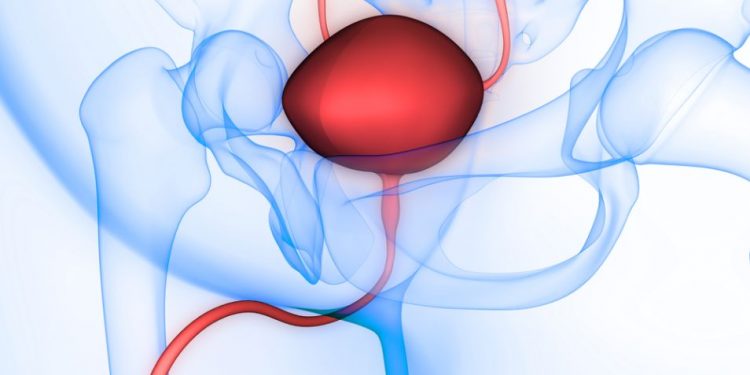The male prostate is a small gland that helps men make semen. It is located just below the bladder in front of the rectum, and it wraps around a tube that carries urine and semen out of the body. The prostate usually grows larger as a man gets older. If the prostate becomes too large, it can cause problems with urination and ejaculation. Sometimes, cancer develops in the prostate.
Prostate cancer starts when cells in the prostate begin to grow abnormally. These abnormal cells may spread to other parts of the body over time. Most people with prostate cancer have no symptoms in the early stages of the disease. However, screening can detect changes in the prostate that are likely to become cancer. Screening is done by testing blood levels of a substance called prostate specific antigen (PSA). High PSA levels suggest that the prostate has cancer or is getting ready to develop cancer.
When a person has prostate cancer, doctors evaluate samples of the tumor under a microscope to determine what stage the cancer is in. They use a scoring system to rate the pattern of the cancer cells, from 1 to 5. A lower score means that the cancer is less serious. A higher score means that the cancer is more severe and will spread more quickly.

There are many things that can increase a person’s risk of developing prostate cancer. Some of these factors, like age and family history, cannot be changed. But other factors, such as lifestyle and diet, can be changed.
Some types of prostate cancer grow slowly and do not spread, so doctors may recommend watchful waiting or active surveillance. This means that a patient does not get treatment right away, but instead has regular doctor visits and tests to see how the prostate is growing. If the doctor notices that the cancer is growing, he will start treatment.
Other treatments for prostate cancer include surgery, radiation therapy, and medications. Medications can help reduce the symptoms of prostate cancer, such as painful urination and ejaculation. Some medications can also prevent the prostate from producing hormones that can cause it to grow. Another medication, called androgen deprivation therapy or ADT, blocks testosterone, which can help prostate cancer cells grow. It is often given before, during, and after radiation therapy and is also used as a stand-alone treatment for some patients. A doctor can give ADT as injections or tablets.









